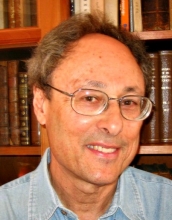
The Smithsonian Libraries is pleased to present the 20th Annual Dibner Library Lecture:
Copernicus and the Astrologers, Featuring Robert S. Westman
Thursday, December 12, 2013, 5:00 p.m.
Reception to follow
Nan Tucker McEvoy Auditorium, Smithsonian American Art Museum
8th and F Streets NW Washington, DC 20004
RSVP at 202-633-2241 or SILRSVP@si.edu
Event is free and open to the public
The Smithsonian Libraries will hold the 2013 Dibner Library Lecture on Thursday, December 12, 2013 at 5:00 p.m. The lecture will be held in the Nan Tucker McEvoy Auditorium in the Smithsonian American Art Museum and is free and open to the public.
This year’s guest lecturer is Robert S. Westman, a professor at the University of California, San Diego.
Dr. Westman specializes in the cultural history of early modern science. A graduate of the University of Michigan (1971), with a Ph.D.in the History of Science, he taught at the University of California Los Angeles before moving to the University of California, San Diego in 1988. He has published numerous books and articles including his most recent book, The Copernican Question: Prognostication, Skepticism and Celestial Order (2011).
Begun in 1992, the Dibner Library Lectures feature a distinguished scholar who has made significant contributions to his or her field of study. Previous lecturers include British historian Richard Holmes and Harvard University professor Joyce E. Chaplin. Since 2000, the Dibner Library Lecture has become available in published form. The lecture series and its publication are made possible by the support of The Dibner Fund.
The Dibner Library of the History of Science and Technology, one of the Smithsonian Libraries’ 20 locations, opened in October 1976. The library’s core collection of 10,000 rare books and 1,600 manuscript groups came to the Smithsonian from the Burndy Library, founded by Bern Dibner in Norwalk, Conn., at the time of America’s bicentennial celebrations. The collection includes premier scientific texts spanning the 13th to the early 20th centuries and has grown to form one of the cornerstones of the Smithsonian Libraries’ collections. For 35 years, this library has provided vital primary sources to scholars, curators and members of the scientific community.

Be First to Comment